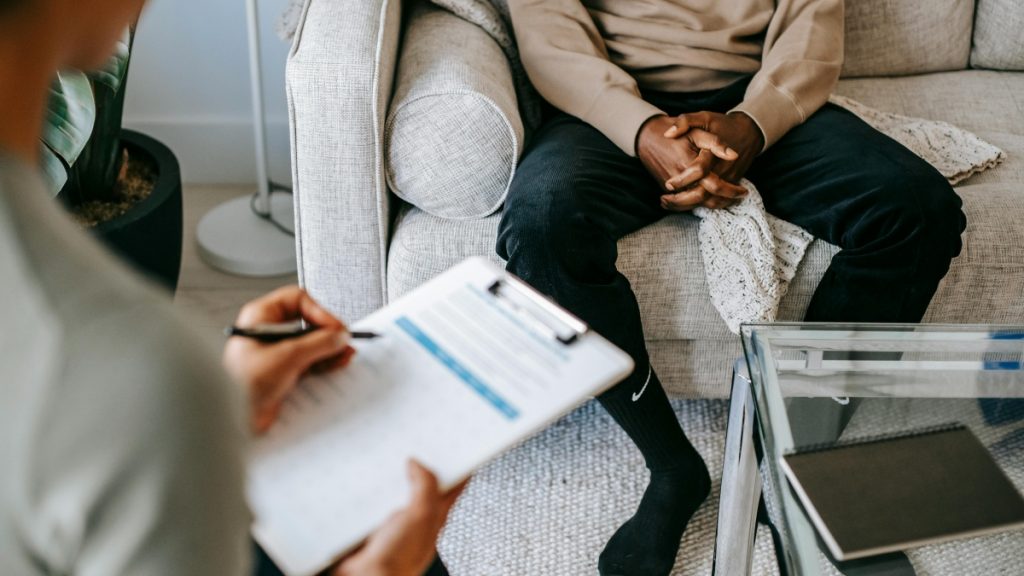Trust is a fragile thing. Break it once, and it can feel almost impossible to put it back together. I used to believe that once trust was shattered, it was gone for good. But I’ve learned that that’s not quite true through therapy. It hasn’t been an easy path, and in many ways, I feel like it will always be a work in progress. To anyone who’s ever felt betrayed or let down, I want you to know that healing is possible, and trust can be rebuilt—both in yourself and others.
Facing Broken Trust
My journey with therapy began after a significant relationship in my life unraveled due to dishonesty and broken promises. The disappointment weighed heavily on me, and I started questioning my ability to judge people and situations. It felt like I’d been stripped of the security I’d once relied on. I needed help to find a new sense of balance and understanding.
A major step was acknowledging that while I had lost trust in someone else, I had also lost trust in my perceptions. It was a feeling of confusion and vulnerability. Therapy helped dissect these emotions, teaching me to recognize patterns and triggers that could distort my trust unequally across different areas of my life. I came to realize the importance of distinguishing between healthy skepticism and defensive barriers. This realization was eye-opening and set the stage for profound personal growth.
This journey of rebuilding trust isn’t exclusive to adults but is incredibly vital for younger individuals as well. Guiding them through similar challenges can be vital, and exploring mental health treatments for teens offers important insights into how therapy can reshape trust, fostering a healthier environment for self-discovery and relationship building.
The Role of Therapy
Therapy was initially intimidating. The idea of opening up about my deepest insecurities and heartaches to a stranger was daunting. But to my surprise, it became a place of solace. Sharing my story and feelings allowed me to piece together the reasons behind my trust issues. Through open conversation and guidance, I started realizing that my trust wasn’t inherently broken—as if it was designed to be faulty—but rather it had been wounded by very specific events. Therapy helped me understand that trusting others starts with trusting myself.
A revelation came when my therapist introduced me to the concept of “trust circles.” The idea was to identify and map different circles of trust that existed in my life—from family and friends to colleagues and acquaintances. This exercise highlighted variations in my expectations and relationships, providing clarity on why trust was stronger with some and weaker with others. It was a unique way of visually realizing how trust dynamics play out, lending a deeper understanding of where attention needs to go for healing.
Developing Self-Trust
Therapists often emphasize the importance of trusting yourself foremost. To heal, I needed to trust my instincts, decisions, and judgments. I remember one session where my therapist asked, “Why do you question your ability to make sound decisions?” I admitted that fear was constantly clouding my judgment and made me second-guess every choice.
Strengthening self-trust involves accepting past mistakes, learning from them, and acknowledging that everyone makes errors. Self-trust isn’t about getting it right every time but believing in the process and journey. With time, therapy has shown me that trusting myself doesn’t mean being perfect; it means being prepared to stand by my choices and grow from them.
As I began to trust myself more, there was a noticeable change in how I approached relationships and new opportunities. I started acknowledging that it was okay not to have all the answers right away, and that making decisions required courage, not infallibility. This mindset allowed me to embrace uncertainties with a newfound resilience—a trait that further reinforced my journey of self-trust.
Rebuilding Trust in Others
Therapy provided me with tools to approach relationships more openly and rationally. By defining clear boundaries, I learned to communicate my needs and expectations better. These discussions taught me the importance of being consistent with these boundaries to avoid future misunderstandings.
Rebuilding trust with others also involves giving people a chance, without assuming they’ll repeat past transgressions. Trust isn’t given blindly but is a gradual process of mutual understanding and respect. It felt liberating to understand I could control this process at my own pace without rushing into letting every wall down at once.
An important part of re-establishing trust with others was learning to accept apologies and differentiating between genuine remorse and superficial regret. This clarity helped me gauge where to allocate emotional investments and recap the strength of restored connections. Through thoughtful dialogue and repaired bridges, I’ve come to appreciate the beauty of forgiveness and second chances, both necessary ingredients for nurturing trust.
The Ongoing Journey
Learning to trust again doesn’t happen overnight. It requires commitment, patience, and often, forgiveness — not just toward others but toward ourselves as well. There are still days where I’m cautious and hesitant, but they’re countered by moments of hope, connection, and incredible trust.
Therapy played a substantial role in my recovery, and I believe it can help anyone willing to let it. The journey is deeply personal and unique, but what’s vital is taking that first step toward reclaiming trust in your life. Understanding that, despite the odds, trust can be restored is by far the most meaningful lesson I’ve ever learned.

